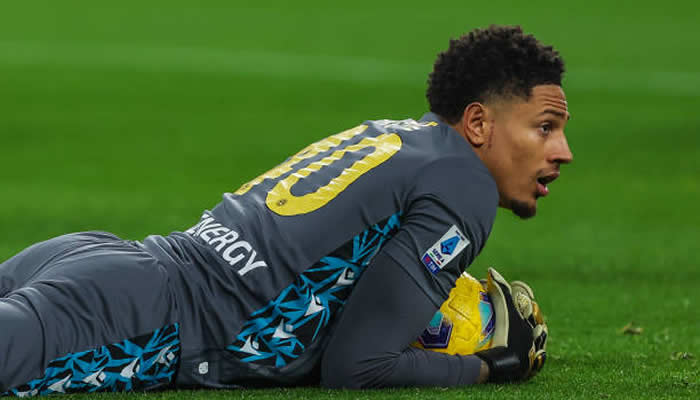The Unraveling of a Promising Career: Maduka Okoye’s Betting Scandal
Maduka Okoye, the Nigerian international goalkeeper plying his trade at Serie A club Udinese, has found himself embroiled in a betting scandal that has cast a shadow over his promising career. The controversy stems from a Serie A match between Udinese and Lazio on March 11, 2024, where Okoye received a yellow card for time-wasting in the 64th minute. While seemingly an innocuous incident within the context of the game, the subsequent surge in suspicious betting activity surrounding the yellow card raised red flags within Italian football authorities.
The suspicious bets, predominantly originating from the Udine region, predicted a yellow card for Okoye with odds of 8/1, generating winnings exceeding €120,000. This unusual betting pattern triggered an investigation by Italian authorities, focusing on Okoye and three of his acquaintances. The investigation culminated in a disciplinary hearing in June 2025, where Okoye faced potential charges of sporting fraud, carrying a potential four-year ban.
However, the disciplinary panel, after careful consideration, opted for a lesser conviction related to illegal betting, handing Okoye a two-month suspension. Although escaping the more severe sporting fraud charge, the two-month ban still carries significant consequences for the young goalkeeper. The suspension, effective from August 18, 2025, coincides with Udinese’s Coppa Italia clash against Carrarese and will rule Okoye out of six Serie A matches. He is expected to return to action on October 19, 2025.
This incident marks a significant setback for the 25-year-old Okoye, who joined Udinese from Watford in 2023 and has earned 18 caps for the Nigerian national team. The betting scandal raises questions about his judgment and potentially jeopardizes his future prospects. The investigation leaves lingering uncertainties, particularly regarding the involvement of Okoye’s acquaintances and the precise nature of their connection to the suspicious bets.
The case underscores the growing concern within the footballing world about the influence of gambling and the potential for match-fixing. The ease of online betting and the large sums of money involved create a fertile ground for corruption. While Okoye avoided the most severe penalty, the incident serves as a cautionary tale for other players and highlights the need for continued vigilance in combating illegal betting activities in football.
The Italian football authorities’ decisive action sends a clear message that such behavior will not be tolerated. However, the relatively lenient punishment compared to the potential four-year ban for sporting fraud raises questions. Did Okoye’s cooperation with the investigation influence the final decision? Were authorities unable to definitively link him to the orchestration of the suspicious betting activity? These unanswered questions leave room for speculation and highlight the complexities of investigating and prosecuting such cases. As Okoye serves his suspension, the footballing world will be watching closely to see how he rebuilds his career and reputation in the aftermath of this damaging episode. The incident serves as a reminder of the precarious nature of a professional athlete’s career and the importance of maintaining integrity both on and off the field.


